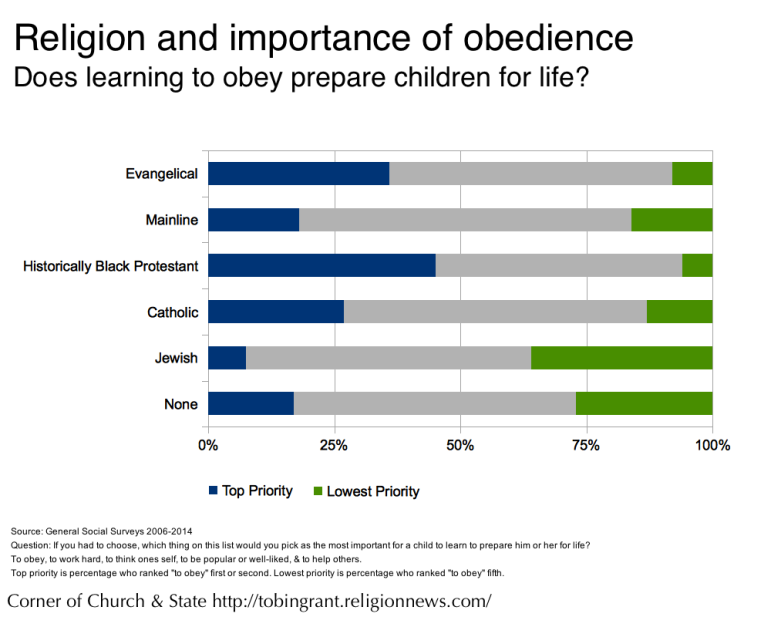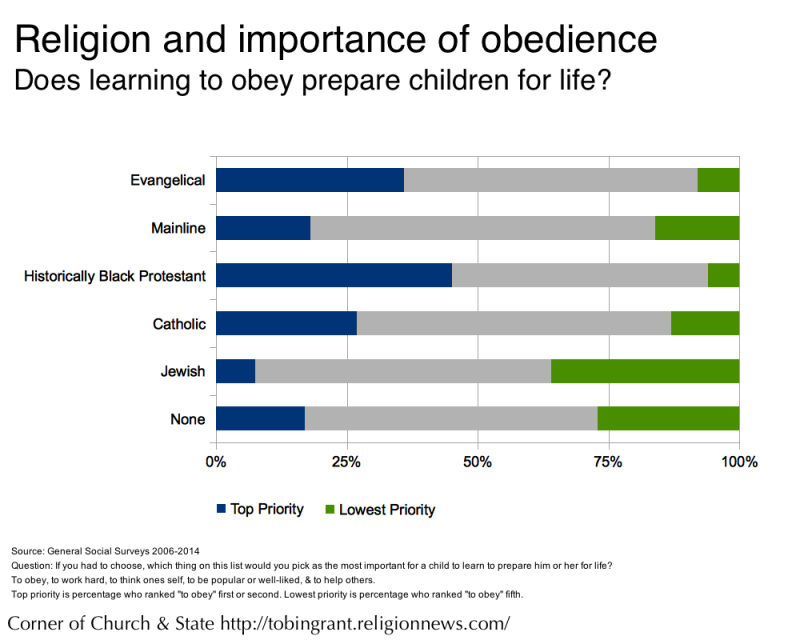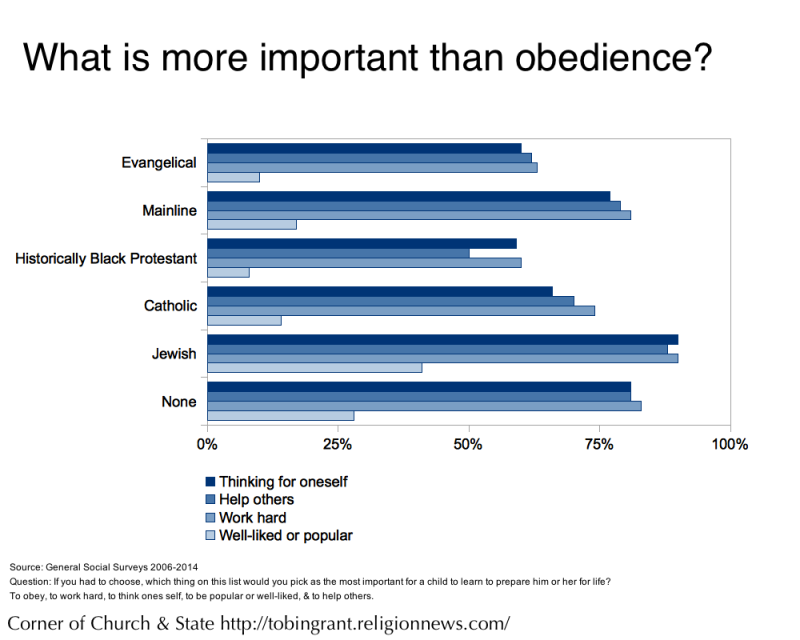How we raise children says a lot about our values. Do we want them to grow up and think for themselves, obey authority, be helpful, or what? Obviously, religion can guide answers to this question.
Since the 1980s, the General Social Survey has asked people to rank five things that a child should learn “to prepare him or her for life”:
- To obey
- To think for oneself
- To work hard
- To help others
- To be popular or well-liked
A plurality of Americans say children need to think for themselves, and few say it is important to learn to obey. But there are differences across religious traditions.
Sizable segments of both Evangelical and historically black Protestant churches value obedience. These same groups have far fewer who name thinking for oneself as a top-value. In contrast, Jews and those with no religion are more likely to rank obedience last among the five traits than to name it as one of their top two.
So, what is more important than obedience? There are three values that people often see as more important than obedience: thinking for oneself, working hard, and helping others. These three are more valued among mainline Protestants, Catholics, Jews, and the so-called nones.
The real “opposite” to obedience isn’t thinking for oneself, it’s popularity. For many Americans, obedience and being well-liked are less important than the other three values in the list.
But which is more important: learning to obey or learning to be well-liked or popular?
The majority of Americans (and each religious group) puts obedience higher than popularity. That said, there are variations. Less than 10 percent of Evangelicals and black Protestants rank popularity over obedience. Nones have 28 percent who value popularity over obedience; for Jews, the percentage is 41 percent.
Bottom-line: There are many values that religious groups in America share. On the whole, each values a strong work ethic, helping others, and independence. But there are differences, too, with some groups giving relatively more value to obedience than others.
Don’t miss any more posts from the Corner of Church & State. Click the red subscribe button in the right hand column. Follow @TobinGrant on Twitter and on the Corner of Church & State Facebook page.







